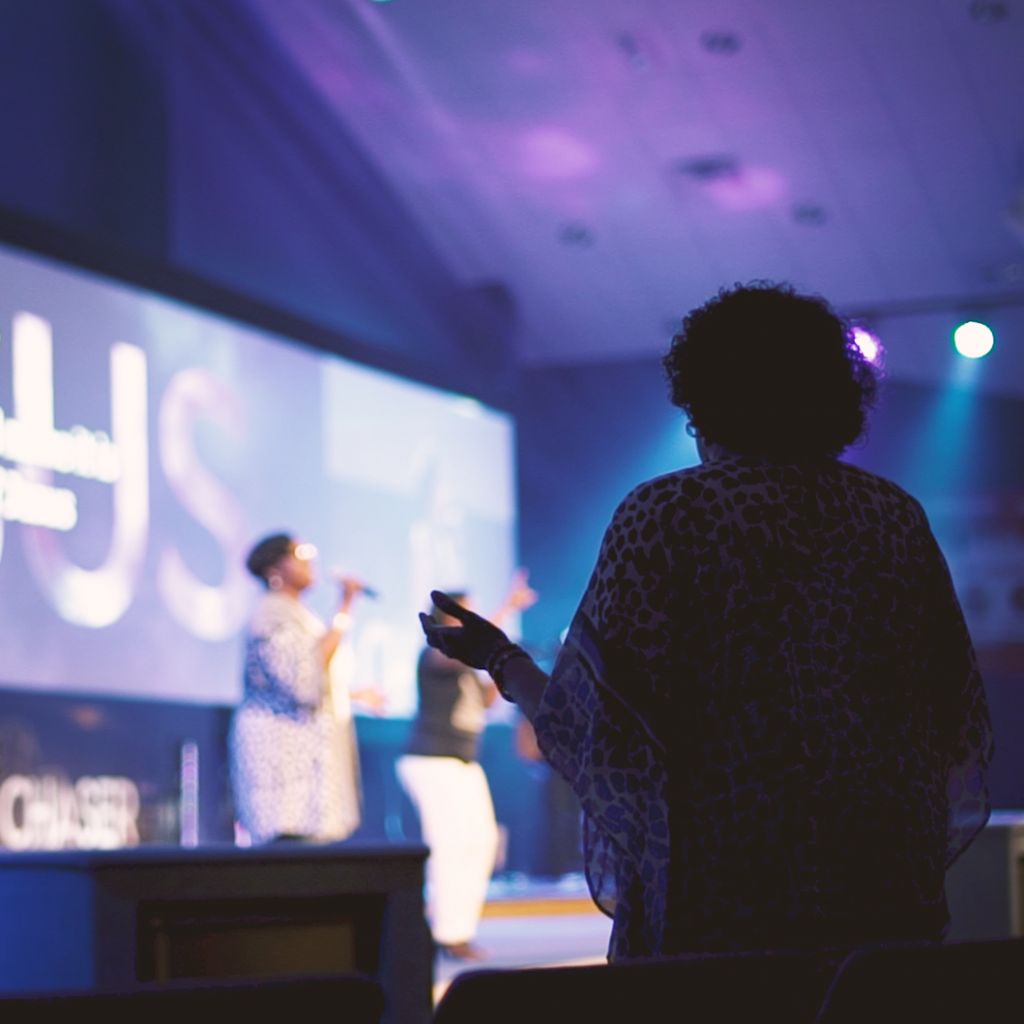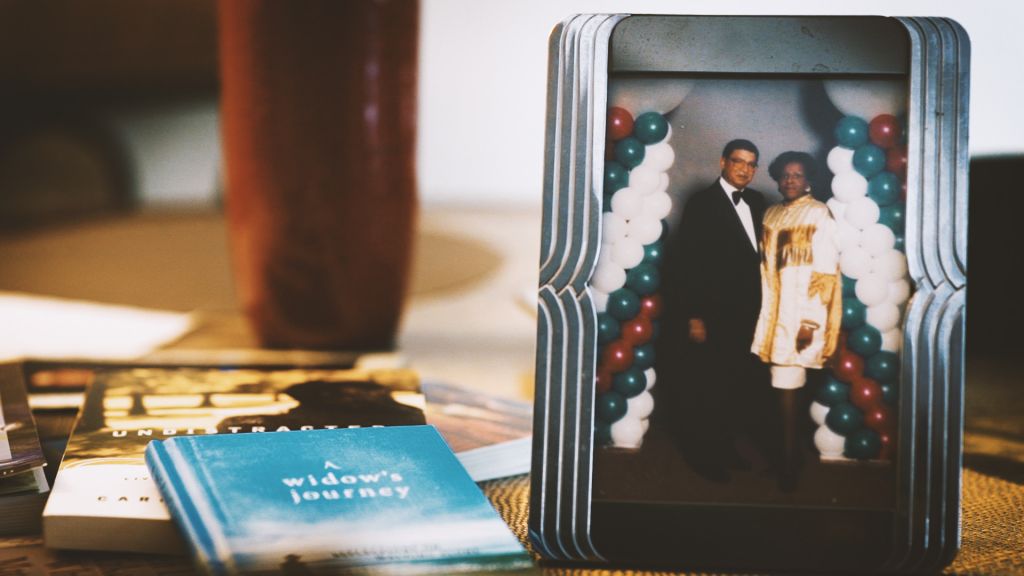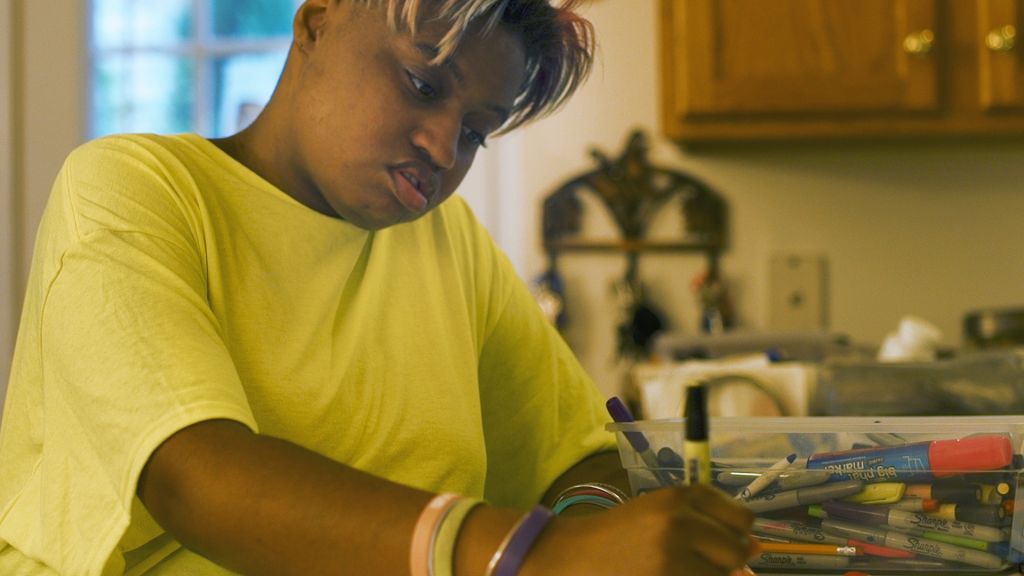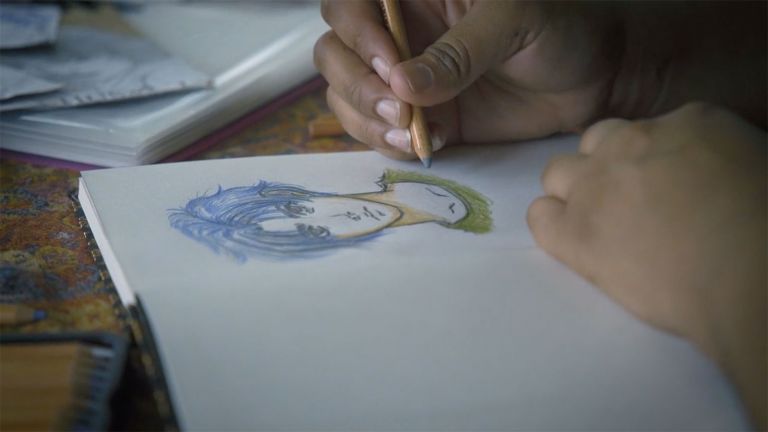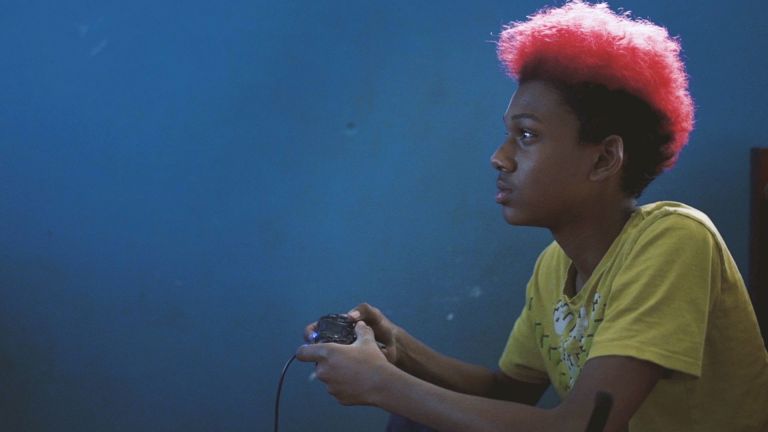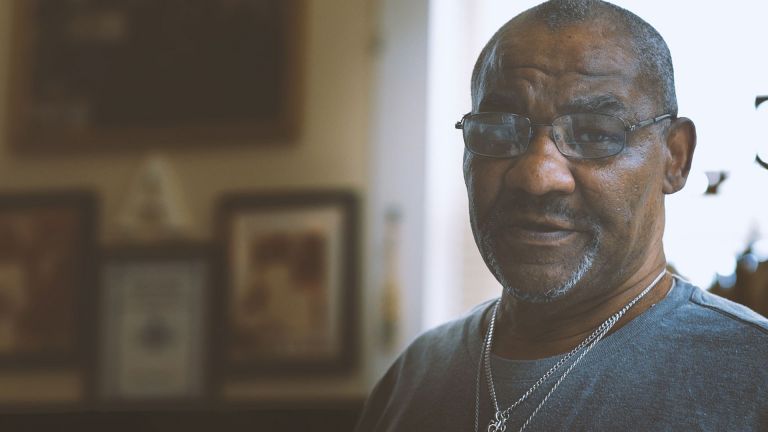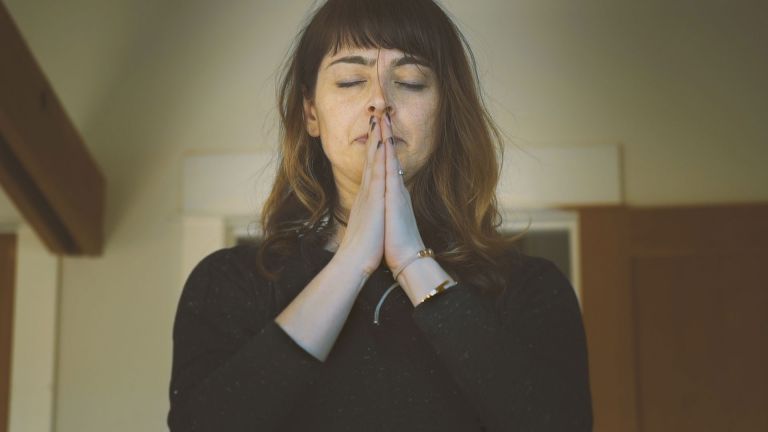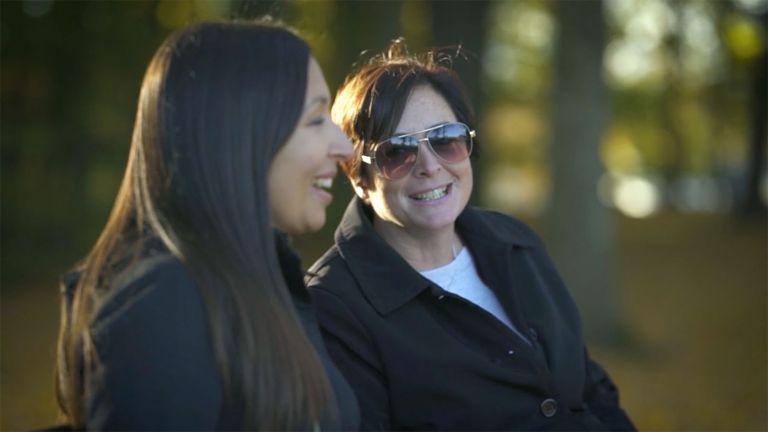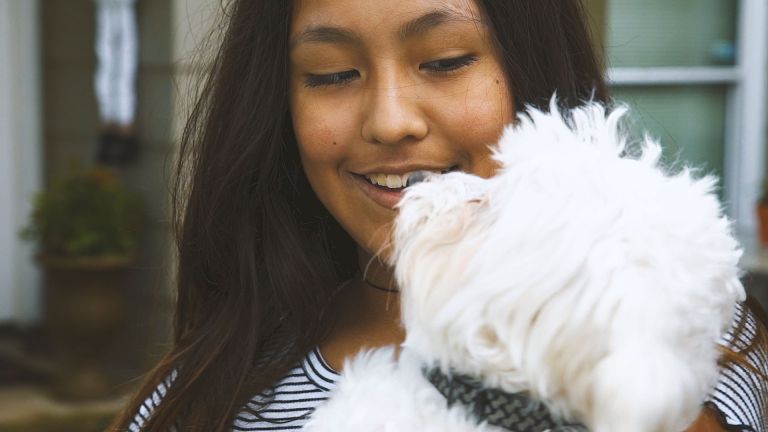Blue-Saunders/Saunders Family
Ajai’s husband and Anise’s father, John, died in 2015. In addition to grieving for John, the two have suffered a number of secondary losses that were brought on by his death. Anise has struggled with the sudden move to a new home as a result of their change in financial circumstances and Ajai has been disappointed by the response of her faith community.
AJAI: My husband.
ANISE: My dad.
AJAI: Throughout my life, I have lost my father, my mother, my brother, my sister and my granddaughter. When my husband died in 2015, that took the life out of me, and that really showed me, oh, this grief is something that can carry you and be a part of your life a long time. John’s death was like, half of me leaving. The covenant partner that I shared 23 years with hopes and dreams and plans and all those things was gone, and I did not realize how different that was from the other griefs that I experienced. The grief I have with John was so deep and so unnerving, it wrapped my life. Now you’re left by yourself with your daughter, and how do we live, what do we do and how do we make this happen and work?
ANISE: I just wish that he was still here. 2015 was too soon for him to leave, I was sad a lot, my heart was broken.
AJAI: I really miss John’s physical presence. I miss his hugs. I miss him being around. I experienced a complete void in my existence almost, because we had the kind of relationship that I worked full time, he was retired he stayed at home, and did a lot of things at home and so he wasn’t there to do those things and so, I then had to try to find work that suited me, having flexible hours and being available for Anise.
ANISE: I don’t look at pictures of him, I did a long time ago but, it’s not the same.
AJAI: As a person of faith, I went to the Bible to discover God’s word. And one thing He said was, I will always take care of widows and orphans. So I expected, people to come by to bring casseroles to call on us, and that didn’t happen. So I realize that people who I was counting on, weren’t going to be there. And it is not because they didn’t care, they couldn’t carry the weight for me. They couldn’t carry this burden for me. They didn’t understand what happened why I changed, and the person that I was before, I will never be again.
ANISE: I was mad at God. I didn't want my dad to leave, I didn’t want my dad to go. So I always have to tell myself, have faith cause it’s gonna get better, when it isn’t getting better, but I have to tell myself it is.
AJAI: I know that there are people who would want to know why someone like me, after three or four years of having lost my husband, hasn’t gotten over it. Why would I even do this interview, since it’s been so long ago. I thought this was important, so that people would understand grief and they would understand that it never goes away. You learn to live with the grief. The grief experience becomes softer to you. But you don’t ever, get over it.
I think a misunderstanding of the faith community is that they won’t allow people to experience grief because then it puts a burden on them to not feel. It puts a burden on people who are grieving to have this false persona of, I got it all together. The fact that I know where John is, I believe in life ever after. I believe that there is a heaven. I believe that he is in heaven. That reassures me of where he is and it reassures me that as a child of God, I’ll see him again. So that’s comforting. That in no way minimizes my grief experience because the grief experience is loss. It’s not about, it’s not about hereafter and heaven, it’s you...It’s a person experiencing something missing from their life. And in that experience, all the things that that you miss from your life, they’re not there
You know when someone leaves you, when someone’s not there. When someone dies. When John left he was no longer there, there’s a physical emptiness that you have. You no longer have their hugs. So I missed just the hugs. I missed just touching, I missed just someone’s feeling. You actually miss a man's presence. So I have a couple brothers at church who are ushers, who whenever they see me they come to me and they gave me the biggest hugs. And I just appreciate that so much because I don’t get that. I don’t get those big men hugs, you know that just makes my day. It just makes my day.
What I have found is that the best thing someone could do is just to be there. Just say I’m coming over. And they come over and they just sit with you. It’s called the Ministry of presence. Just being there, allowing the person who is grieving, allowing me to just talk about things I want to talk about. Not having the answer to fix it, not trying to solve everything that is going on, but just being there. So the Ministry of presence is just having people who don’t want to fix you. Don’t want to make it better because they know they can’t. But, but they just want to stand alongside you. To just be there for each other. Yeah. That’s good. The Ministry of presence.
The person that I was before I would never be again. I would never be her again. The lightness of the world that I had, the lightness of just being able to do what you want to do and travel and be independent, I don’t have that world anymore. I was once a wife and I’m not a wife anymore, I’m a widow.
